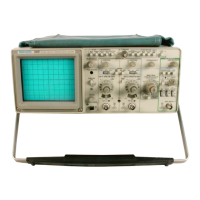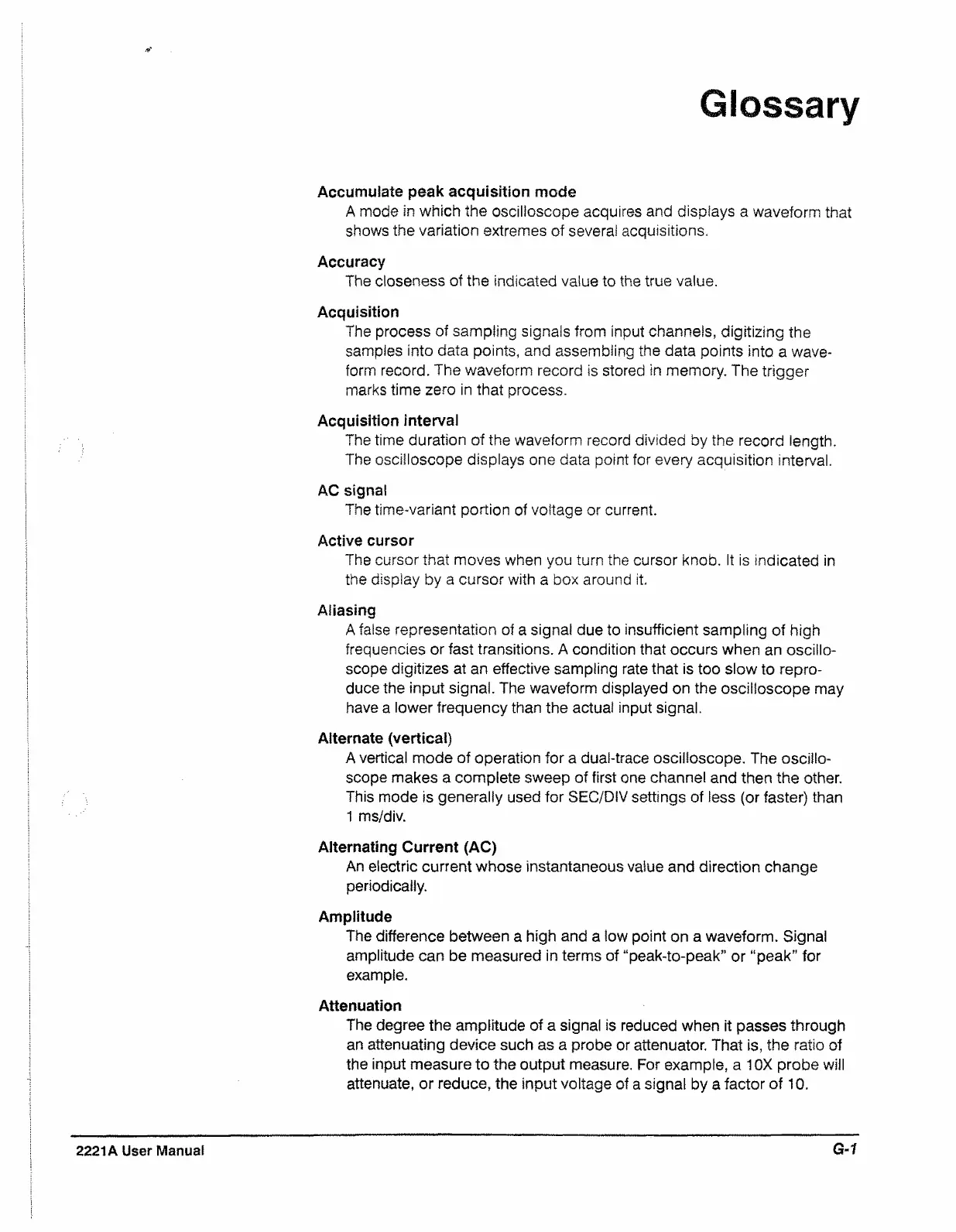Glossary
4?
Accumulate peak acquisition mode
A mode in which the oscilloscope acquires and displays a waveform that
shows the variation extremes of several acquisitions.
Accuracy
The closeness of the indicated value to the true value.
Acquisition
The process of sampling signals from input channels, digitizing the
samples into data points, and assembling the data points into a wave
form record. The waveform record is stored in memory. The trigger
marks time zero in that process.
Acquisition interval
The time duration of the waveform record divided by the record length.
The oscilloscope displays one data point for every acquisition interval.
AC signal
The time-variant portion of voltage or current.
Active cursor
The cursor that moves when you turn the cursor knob. It is indicated in
the display by a cursor with a box around it.
Aliasing
A false representation of a signal due to insufficient sampling of high
frequencies or fast transitions. A condition that occurs when an oscillo
scope digitizes at an effective sampling rate that is too slow to repro
duce the input signal. The waveform displayed on the oscilloscope may
have a lower frequency than the actual input signal.
Alternate (vertical)
A vertical mode of operation for a dual-trace oscilloscope. The oscillo
scope makes a complete sweep of first one channel and then the other.
This mode is generally used for SEC/DIV settings of less (or faster) than
1 ms/div.
Alternating Current (AC)
An electric current whose instantaneous value and direction change
periodically.
Amplitude
The difference between a high and a low point on a waveform. Signal
amplitude can be measured in terms of “peak-to-peak” or “peak” for
example.
Attenuation
The degree the amplitude of a signal is reduced when it passes through
an attenuating device such as a probe or attenuator. That is, the ratio of
the input measure to the output measure. For example, a 10X probe will
attenuate, or reduce, the input voltage of a signal by a factor of 10.
2221A User Manual
G-t

